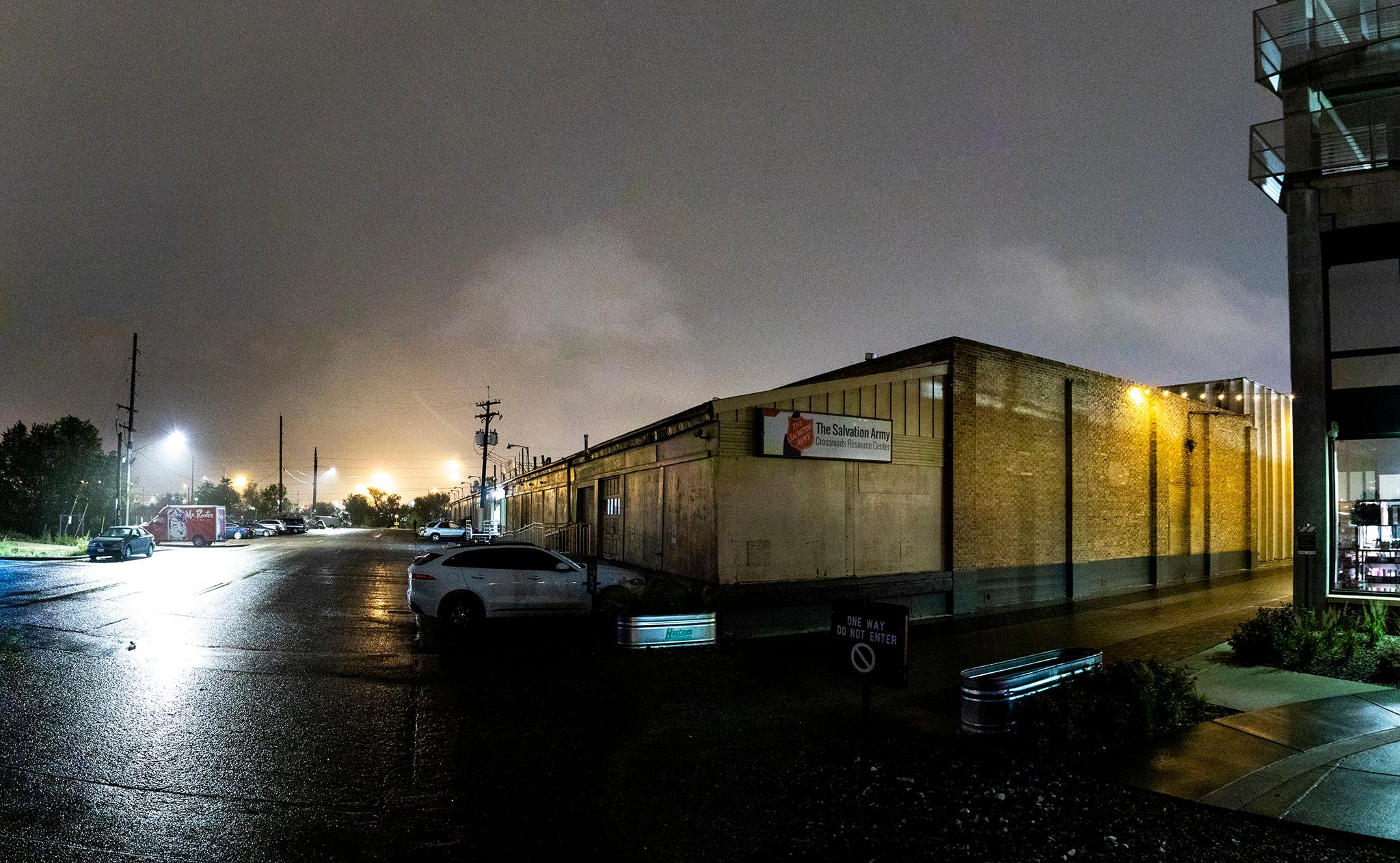When Dominic Ortegon was focusing on little more than where and how to get drugs, the Salvation Army was just a place to sleep.
When he was ready to change his life, Ortegon noticed the faith-based nonprofit's Crossroads shelter in Five Points was offering more than just a free mat for the night. He saw men renting beds with lockers for $60 a week. They didn't have to line up each afternoon to secure a roof for the night, making it easier for them to hold jobs. They had a place to leave their belongings when they went to work, so no one need know they were experiencing homelessness.
Ortegon peppered the men with questions -- How did they get sober? How did they find jobs?
"They were an inspiration," Ortegon said, adding he looked at what the men were doing and thought: "I want that."
He's had his Crossroads bed for a year. He hasn't taken opioids in two years. He works at a uniform rental company in Aurora that hired him permanently after he started there as a temporary employee.
"The bed is a blessing," Ortegon said.
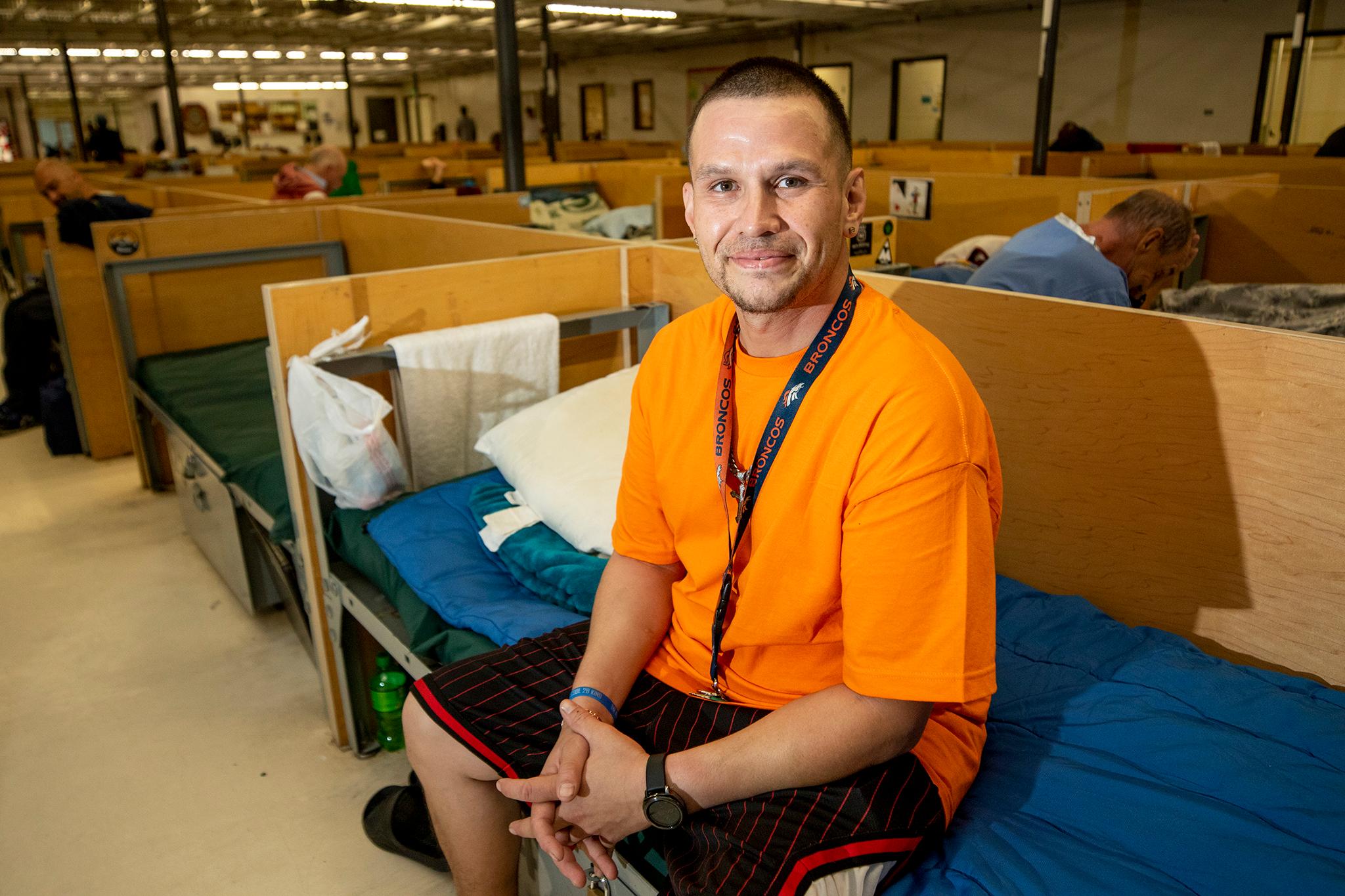
He spoke in a meeting room at Crossroads. Nearby, towering apartment buildings have risen in recent years on Brighton Boulevard alongside warehouses converted into bars and restaurants, testament to how Denver has been rethinking inner city neighborhoods as places to live, work and play. Crossroads, a converted warehouse where the Salvation Army has been offering men shelter since 1983, also shows new thinking -- about how to address homelessness in a city where some residents have been left behind by the booming economy.
Ortegon's days at Crossroads, located just off Brighton at 1901 29th St., begin early. He's up at 4:30 a.m. and heads first to a convenience store for a coffee before catching a train to Aurora at RTD's 38th and Blake station.
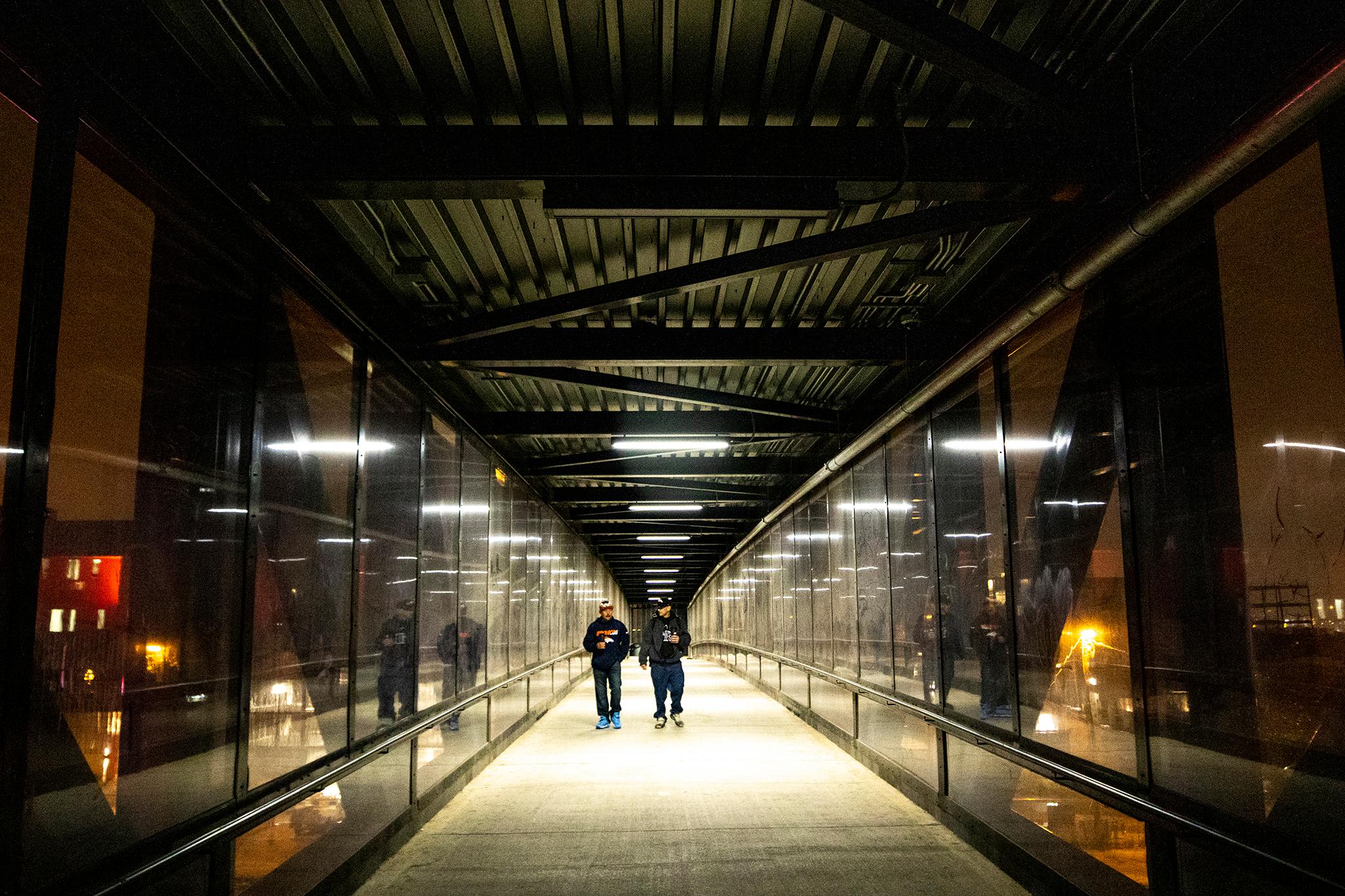
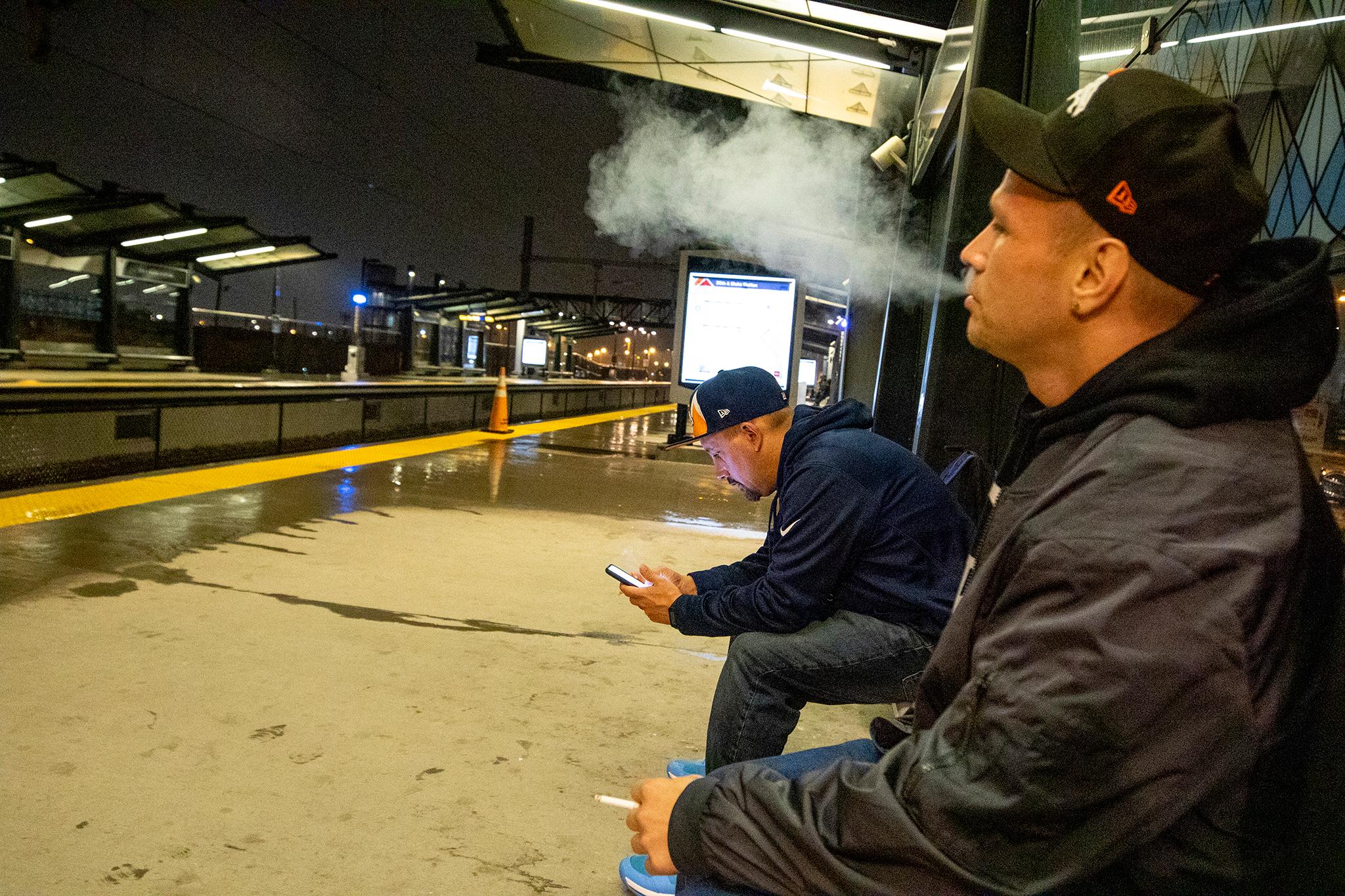
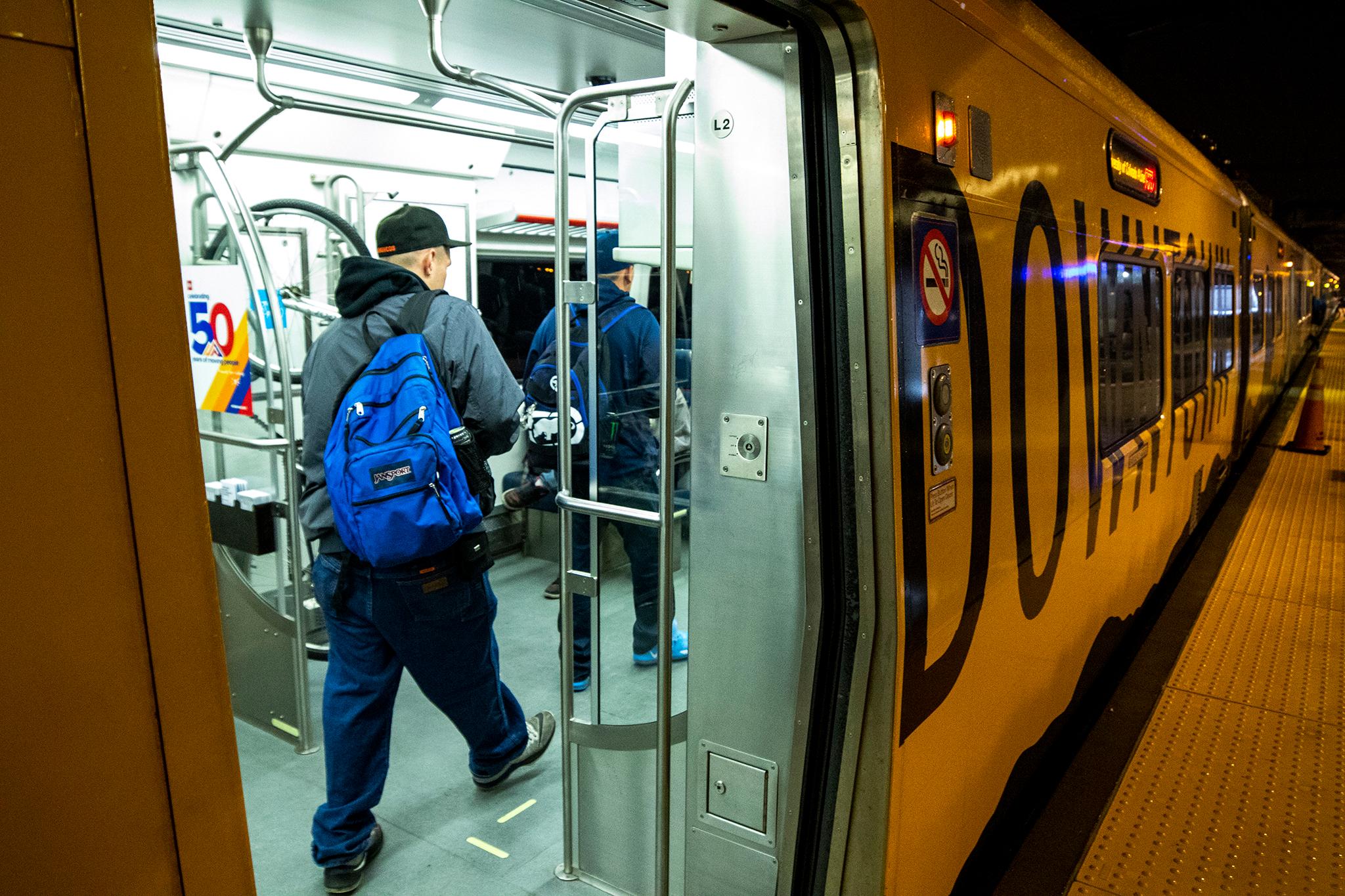
The convenience store clerks used to make him leave his backpack outside, Ortegon said. He's proud of having lobbied for himself, contacting the branch manager to tell him he was spending $100 to $150 a week at the shop. Without a kitchen to prepare meals, convenience foods are often the only option, if an expensive one.
"We're able to take our backpacks in now," Ortegon said. "But it's on your back."
The train gets him to Peoria station by 5:45 a.m., when he catches a bus the rest of the way to work for a shift that starts at 6:30 a.m.
Before his was hired permanently, on some nights Ortegon would sleep outside the temp agency to ensure he was early enough to secure a work assignment for the next day. The temp agency provided transportation from shelters to job sites. Now that he's no longer a temp, Ortegon is responsible for his own commute. He recently helped secure jobs at his company for other men he saw diligently reporting to the temp agency from the Salvation Army.
Now, Ortegon said, his friends are doing what's he's doing: "getting their life together."
At work, he separates dirty uniforms as they come in to ready them for laundering, then prepares packets of clean uniforms for security guards, delivery men and women, mechanics and other workers. The packets are picked up for trucking out. When he gets back to Crossroads in the evenings, Ortegon microwaves dinner from the convenience store and showers and watches a bit of TV before going to bed.
Ortegon recently got a raise from his starting salary of $15.75 an hour to $17. He also saw a friend get a promotion for which he had hoped.
"I'm a felon, so I understand it's going to take me a little longer to move up," he said.
The felony charge marked the beginning of what has so far been five years of homelessness for Ortegon, who was raised in Lincoln Park and Bear Valley by a single mother.
Five years ago he had been living with his sister. She asked him to leave because he hadn't been paying his share of the rent.
"I was spending my money on my addiction," he said.
"My family shied away from me, stopped letting me stay at their homes and kicked me to the streets."
After leaving the apartment he'd shared with his sister he broke in and robbed her to get money for drugs. She called the police, not realizing her brother was responsible. When police identified Ortegon as the suspect, his sister refused to press charges. He was nonetheless convicted of felony trespassing and sentenced to five year's probation.
The oldest of his three children was angry on his aunt's behalf.
"I hurt my son," Ortegon said. "My son stopped talking to me.
"I did go into a pity party at that time. I went deep into my addiction."
Ortegon tried to stop. He said he has completed two rehabilitation programs, only to relapse. Then he saw those beds at the Salvation Army.
"This time I've been clean and sober for two years. On my own. This time I've been doing it for myself," he said.
"I do methadone. It's a medication that helps me with my opiod addiction," the 36-year-old said.
At first he had to visit a methadone clinic daily. Now he's trusted to keep a two-week supply with him.
Chuck Lortie, the case manager at Crossroads, said that while drug and alcohol use are not allowed at the shelter, people who arrive high or drunk are not turned away. If they were, Ortegon might never have seen beds like the one he's renting. The Salvation Army facility also has cubicles that resemble dorm rooms with beds, dressers and desks that can be rented for $90 a week. Lortie said Crossroads has about 250 mats, 220 rental beds, 34 cubicle rooms -- so about as many men are in beds and cubicles as on mats -- and 24 free beds reserved for men experiencing homelessness who have recently been released from hospitals or otherwise have medical conditions that leave them vulnerable.
"Most of the people that are in the beds or in the rooms are at a whole different level of stability in their lives" compared to those on the mats," Lortie said.
According to the Point in Time, a survey that gives an annual picture of homelessness across the country, 3,943 people were experiencing homelessness in Denver one January, 2019 night. Of those, a minority, about a third, told interviewers they had substance abuse concerns. And about a third expressed concerns about their mental health.
Substance abuse and mental health issues can make it difficult to find and keep housing, but such issues aren't the norm among those experiencing homelessness.
Major Mike Dickinson, the Salvation Army's divisional commander, said some of those sheltered at Crossroads are working and lost housing because of gentrification. Lortie said he's seen people end up in shelters who were just a paycheck or two away from disaster when they lost a job or suffered a health emergency. For older adults on fixed retirement or social security incomes, disaster can take the form of a rent increase.
"We're really helping a big chunk of people (who) just became homeless because they lost everything," Lortie said.
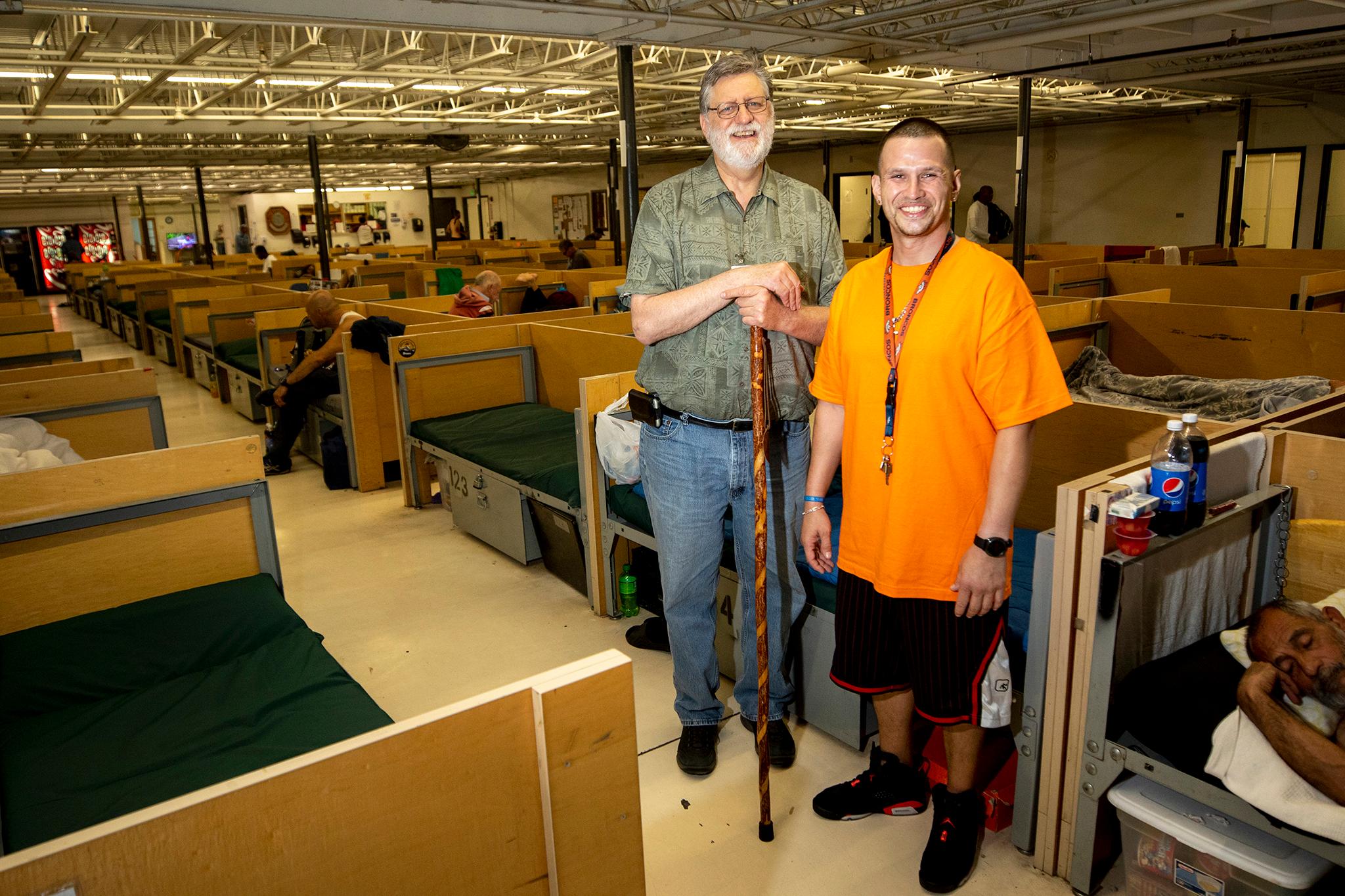
For 14 years before coming to the Salvation Army a year ago, Lortie was a case manager at another shelter run by the Denver Rescue Mission. He said just a few other shelters provide beds or cubicles for rent as the Salvation Army does.
Saint Francis Center, another faith-based nonprofit that serves people experiencing homelessness, plans to build boarding-house style rooms for the working poor inside a Cheesman Park church where it has run an employment center for a decade. Some 42 rooms are expected to be available at Warren Church in early 2021.
Some organizations, Lortie said, offer spots in transitional housing programs that provide support but can be so rigidly run that it can be difficult to hold a job and hold a place in one. The Salvation Army recently reopened its Lambuth Family Center in Sloan's Lake after a physical renovation as well as a rethinking of approach. A curfew and rules about when residents were supposed to vacate Lambuth common areas were among regulations relaxed to accommodate, for example, parents whose work schedules keep them out late.
Catholic Charities, which runs Denver's largest emergency shelter for women, hosts at its shelter building a separate, 50-bed transitional housing facility that looks like an unusually large dorm room and has lockers where women can store their belongings while they're out working or looking for jobs or housing. Some women have been able to leave Catholic Charities' transitional housing to go directly to permanent housing; others might stop first at a more structured program.
At Crossroads, the beds and cubicles provide a measure of independence for someone who might need nothing more than a place to rest between shifts at a warehouse or stocking grocery shelves, not job training or rehab. Paying $60 or $90 a week helps build bill-paying habits that can lead to even more independence.
City officials announced in August they were planning to buy Crossroads for $10.5 million and for at last the next three years lease it back at $1 a year to the Salvation Army to run. Dickinson, the Salvation Army's divisional commander, said when that announcement was made that the $10.5 million would allow his organization to enhance operations across the city. He also said the Salvation Army has proposed using Crossroads, now like most shelters closed to most people during the day, as a day shelter as the city revamps its shelter strategy to try to serve more people. Britta Fisher, the chief housing officer for Denver city government, said among ideas was moving away from emergency beds to designated beds.
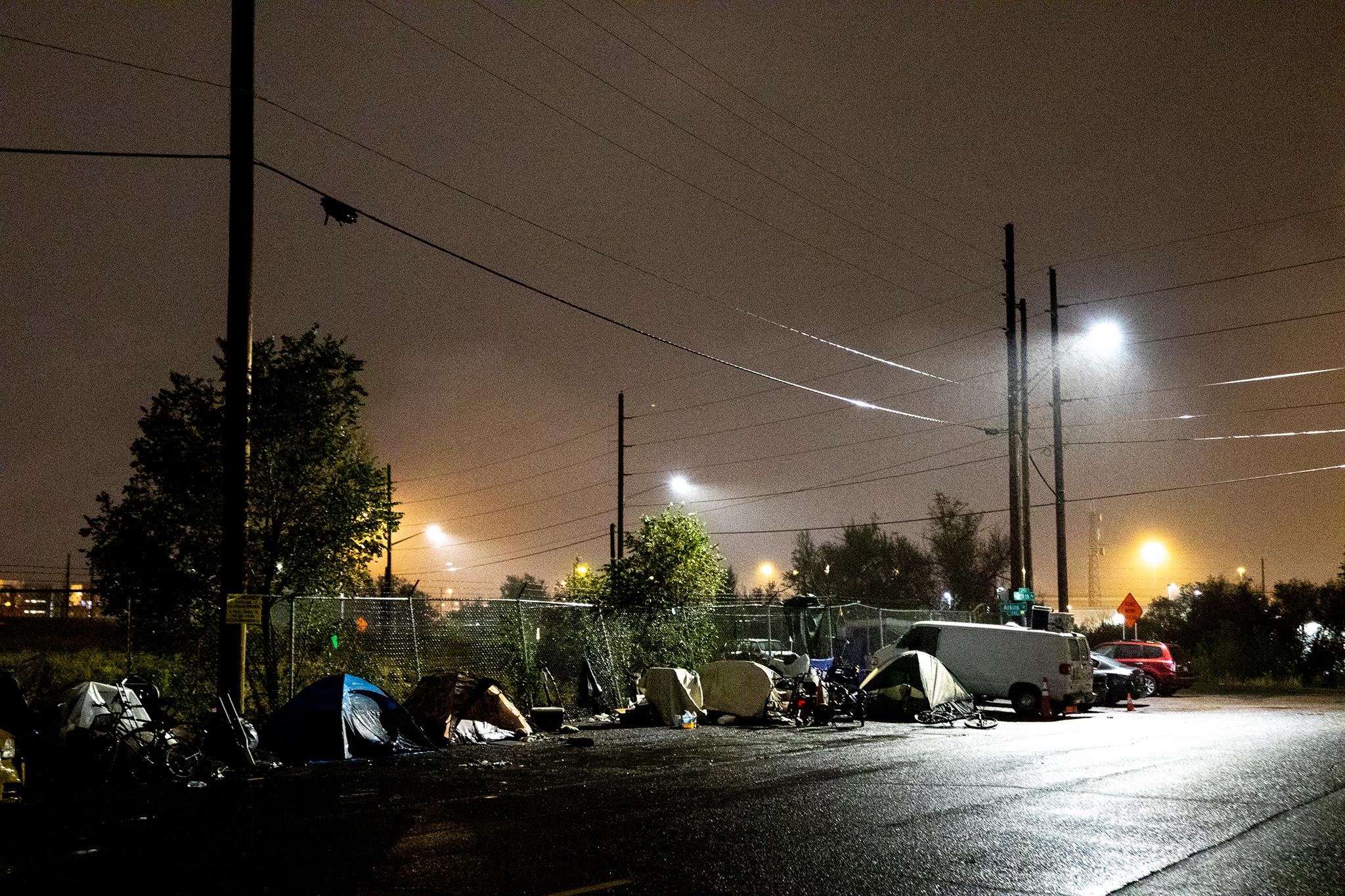
"There are certainly aspects about what the Salvation Army does now that would align with that," she said.
But she said specific proposals for Crossroads and other shelters would only emerge after talks with neighborhoods and City Council members.
Lortie said changes at Crossroads could include expanded case management to help point men to housing, jobs, veterans' services and other benefits and health support.
"My job is just to try to see what I can do to navigate to get them to the right place," Lortie said.
Ortegon is hoping that by next summer he will have saved up enough for a deposit and other fees to secure an apartment. His expenses include monthly child support payments. He worries his criminal record might mean landlords will turn him away even if he does get together the money for a place.
"I've been looking for a spot," he said. "But they're just so expensive these days."
He's started to mend relationships with his family. He's been spending weekends at his brother's apartment. His eldest son recently reached out by phone.
"There's some decisions I wish I could take back," Ortegon said, reviewing the path that brought him to a Salvation Army bed.
He said many people may have misconceptions about Crossroads.
"It's not just a haven for druggies," he said. "There's a lot of people here who are trying to get their lives back together."
Some may be on mats now, looking up to him in his bed, he said.
"It makes me want to do the right thing all the time," he said. "Even when no one is looking, when no one is looking but the Lord."

